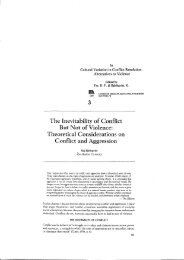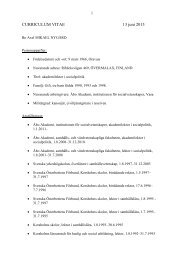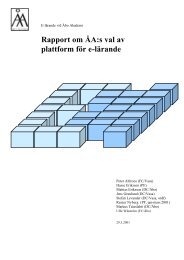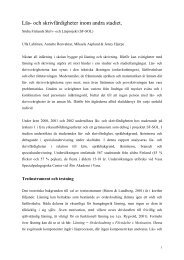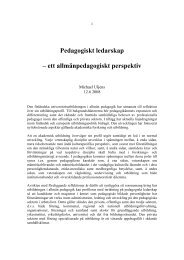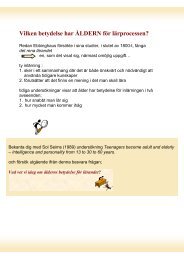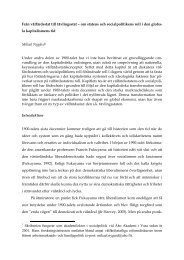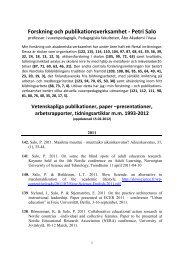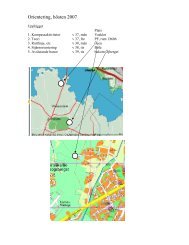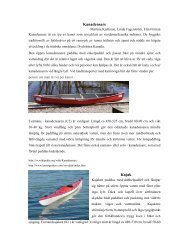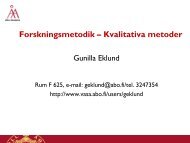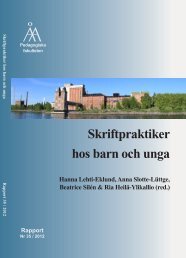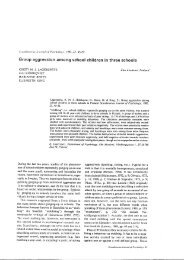Parties, Candidates and Citizens On-Line - Åbo Akademi
Parties, Candidates and Citizens On-Line - Åbo Akademi
Parties, Candidates and Citizens On-Line - Åbo Akademi
Create successful ePaper yourself
Turn your PDF publications into a flip-book with our unique Google optimized e-Paper software.
of democratic status <strong>and</strong> the usage of scaled measurement in the content analyses of party<br />
websites seem to contradict the theoretical discussion <strong>and</strong> the operationalizations. <strong>On</strong>e<br />
can again reflect on whether the presence of a more open on-line media environment is<br />
decisive for the findings of equalization. If the on-line media environment is more<br />
favourable for minor parties than the off-line environment, the campaign web sphere is<br />
likelier to be equalized even though other conditions are unfavourable for equalization.<br />
The analysis was carried out using Qualitative Comparative Analysis in order to<br />
apply systematic reasoning in the low-case analysis. The application of the QCA has<br />
brought up certain methodological issues which will be briefly discussed here. The<br />
dichotomization of the election system proved difficult regarding mixed systems, <strong>and</strong> the<br />
dichotomization of the media environment was not without problems either. However,<br />
the original results were valid even if an alternative coding for these two variables was<br />
used. The validity of the findings is therefore high. As is often the case (Jungerstam-<br />
Mulders 2003: 71), the QCA in this study also suffered from limited availability of cases.<br />
This calls for some caution when drawing generalized conclusions from the findings.<br />
Even though this study has analyzed a wide range of systems <strong>and</strong> studies, there are still<br />
many unaccounted for.<br />
In conclusion, normalization seems more dependent on off-line than on-line<br />
conditions, while the relative openness of the on-line media environment appears most<br />
important for findings of equalization. Arguably, these findings have served to develop<br />
the knowledge of the conditions for normalization <strong>and</strong> equalization (cf. Peters 1998: 160-<br />
1). The meta-analysis shed some light on the rather complex research field concerning<br />
party campaigning on-line. In particular, the differing conceptual interpretations of the<br />
normalization <strong>and</strong> equalization theories are important to realize <strong>and</strong> take into account<br />
when conducting future research. The research field will undoubtedly continue to grow,<br />
<strong>and</strong> the number of cases available for meta-analyses will consequently rise. Therefore,<br />
future studies are called upon as there are still many uncharted settings in which party<br />
competition takes place, both off-line <strong>and</strong> on the Internet.<br />
52



